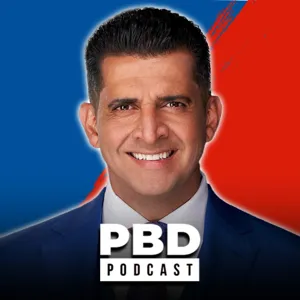Podcast Summary
Oregon's Decriminalization of Hard Drugs: A Real-World Experiment: Oregon's decriminalization of hard drugs in 2021 led to increased public drug use, making it a bellwether for larger-scale policy changes.
Oregon's experiment with decriminalizing hard drugs, which began in 2021 with Measure 110, has led to a significant increase in public drug use. Janina Rager, a community engagement specialist with the Eugene, Oregon police department, shares her daily encounters with drug paraphernalia and people using drugs in downtown areas. This situation has arisen due to the decriminalization of small amounts of hard drugs, making possession and use no longer a crime but an administrative offense. The rationale behind decriminalization was to shift the focus from criminal justice to public health. However, the real-world implications of this policy are still unfolding, making Oregon a bellwether for this idea on a larger scale. The decriminalization of drugs in Oregon began with marijuana in 1973, making it an early mover in drug decriminalization efforts. When Measure 110 appeared on the ballot, it gave Oregon voters the opportunity to make the state the first to decriminalize hard drugs. Decriminalization means that instead of being arrested and taken to jail, individuals can receive citations for drug possession and use. This change in policy has resulted in more visible drug use in public spaces, with Janina Rager's experiences being just one example. The long-term consequences of this policy are still being assessed, making Oregon's experiment an ongoing experiment in real time.
Oregon's new drug decriminalization law shifts focus to public health services: Oregon's Measure 110 decriminalizes drug use, replacing arrests with citations and fines. Services for treatment and housing are being established, but immediate resources are lacking, leaving some individuals without crucial assistance.
Oregon's new decriminalization law, Measure 110, aims to shift the focus from criminalizing drug use to providing public health services. Instead of arrests, police can issue citations with a $100 fine, which can be waived by calling a helpline for assessment and treatment. However, the implementation of these services has been slow, leaving a gap in support for those in need. While intensive outpatient treatment and housing programs are being established, some individuals may still relapse without adequate assistance. The tax revenue from legal cannabis is being used to fund these rehabilitation services, but the lack of immediate resources and the uncertainty of utilization remain challenges.
Police frustration with Oregon's decriminalization citations: Despite challenges, Oregon's decriminalization citations for drug offenses have resulted in a small percentage of individuals seeking help for addiction, leaving law enforcement questioning the approach's effectiveness.
The implementation of citations for drug offenses in Oregon, as part of the state's decriminalization efforts, has been met with challenges. Police officers have shared stories of people disregarding the citations, with some even going as far as lighting and smoking them. The frustration among law enforcement is growing due to the perceived lack of impact and priority of issuing these citations, especially given the competing demands on their time. Despite thousands of citations issued, only a small percentage of individuals have followed through with assessments leading to rehab services. As Oregon residents reevaluate the effectiveness of decriminalization, it's clear that finding a more effective and incentivizing approach for addressing drug addiction is crucial.
Decriminalization without proper resources may hinder effectiveness: The sudden surge of fatal overdoses in Oregon raises concerns about the timing and implementation of decriminalization, highlighting the need for comprehensive recovery programs and clear instructions for those in need.
While decriminalizing drugs with Measure 110 in Oregon was intended to help individuals struggling with addiction, the lack of proper resources and support post-arrest may hinder the effectiveness of the measure. The speaker's personal story highlights the need for more comprehensive recovery programs and clear instructions for those in need. Additionally, the sudden surge of fatal overdoses in Oregon, primarily due to fentanyl, raises concerns about the timing and implementation of the measure. Some voters, like the bookstore clerk interviewed, have expressed regret for their vote due to the lack of public assistance for mental health and addiction issues in America and Oregon. As a result, there is a growing sentiment for a potential backlash against the measure legally.
Oregon's drug decriminalization experiment faces opposition: Opposition to Oregon's drug decriminalization includes calls for reforms, potential ballot measures, and stricter measures like mandatory detox holds and criminalizing multiple tickets.
Oregon's experiment with decriminalizing hard drugs has faced significant opposition, with a growing number of residents calling for reforms and even a potential ballot measure to recriminalize drugs while maintaining funding for rehab. The legislature is also considering measures like mandatory detox holds and turning multiple tickets into criminal cases to address the issue. Oregon's bold move to decriminalize drugs was pioneering, but the fentanyl epidemic and changing public opinion may make lawmakers reconsider. Another interesting point from the discussion is that while some states like Oregon are exploring decriminalization, others like Washington are not. Overall, the debate around drug decriminalization continues to evolve, and the outcome in Oregon will be closely watched by other jurisdictions.






